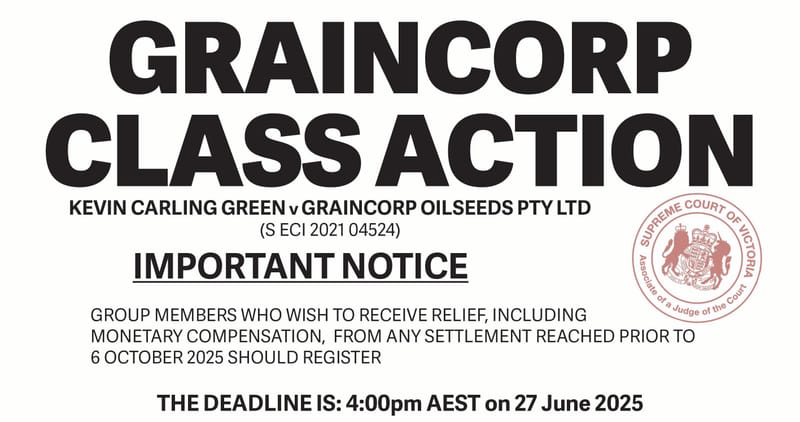Complaint numbers raise ombudsman’s eyebrows
Complaint numbers raise ombudsman’s eyebrows THE Victorian ombudsman has declared that many Victorian councils are understating the number of complaints they receive, after the release of a report in which Moira Shire Council self-reported that it...

THE Victorian ombudsman has declared that many Victorian councils are understating the number of complaints they receive, after the release of a report in which Moira Shire Council self-reported that it received just four formal complaints in 2018.
In contrast, Moira Shire reported it had received 50,000 requests for service in the same period.
Ombudsman Deborah Glass surveyed all 79 Victorian councils, asking them how they define complaints and how many complaints they received in the last calendar year, among other questions.
For the purpose of the report, councils were divided into categories, with Moira being one of 19 classified as a ‘large shire’.
Moira reported the lowest number of complaints in its category, with the average number of complaints being 113, and the average number of requests for service being 33,569.
By comparison, Wangaratta Rural City Council which, though listed in the regional city category, is adjacent to Moira and has a similar size, population and staff, reported 154 complaints and 7,888 requests for service.
Ms Glass said that far too many councils still adopt a narrow definition of complaint or interpret it narrowly in practice.
For example, only 34% of councils said they would consider it a complaint, as opposed to a ‘request for service’, if a person rang to say their bin hadn’t been emptied the night before as scheduled.
Ms Glass said she recognised that councils may have concerns about recording and reporting complaints, particularly when complaints data is used to criticise council services.
“But it is not a solution to disguise the true level of community dissatisfaction by labelling it as a ‘request for service’ or ‘matter with a statutory right of appeal’, instead of recognising it as a ‘complaint’,” she said.
Moira Shire’s General Manager Corporate Simon Rennie said the shire has invested considerable effort in getting its complaints handling right.
“We recognise that extended processes are no fun for anyone, so our policy, which was developed using the Ombudsman’s model policy, empowers our staff to handle a concern on the spot or with assistance from their supervisor,” he said.
“Once our staff have exhausted these processes, the matter is referred to our formal complaints handling process which involves an independent internal review of the complaint and how we have handled the matter.”
“In regard to the requests for service, our customer relationship system recorded 50,291 requests for the 12 months to February 2019.
“As indicated earlier, four of these were referred through to the formal complaints handling process.”
In response to the Leader’s observation that this is in opposition to the Ombudsman’s guidance that complaints should be recorded as such, and not as requests for service, Mr Rennie said that Moira Shire’s community satisfaction is not measured by how many requests for service or complaints it receives, but by how it deals with all and each of these.
“Our staff have received training provided by the Ombudsman’s office that focused on the difference between a request for service and a complaint – so in practice our staff recognise the difference and requests for service and complaints are addressed in line with the relevant procedures and policy – including our complaints handling policy,” he said.
Ms Glass’s enquiry is a follow up to her 2015 report into how councils handle complaints. She said more councils now have policies for how complaints should be handled; more councils accept complaints by a variety of methods, and the information provided to the public on how to complain is better.
Moira Shire’s complaint handling policy, which was adopted on March 22, 2017 and is scheduled for review on March 22, 2021, defines a complaint as:
An expression of dissatisfaction with:
• The quality of an action taken, decision made, or service provided by Council or its contractor, or;
• a delay or failure in providing a service, taking action, or making a decision by Council or its contractor, and;
• the customer has been directly affected.
A matter is not a complaint if it relates to:
• a request for information about Council services, policies or procedures.
• a request for service or action to be taken in relation to a service or product provided by Council such as branches trimmed on a nature strip tree, a rubbish bin repaired, or someone complaining about their neighbour breaching a local law or a planning scheme.
• a report of damaged or faulty infrastructure or hazards such as potholes or fallen branches.
• a suggestion for a proposed service or product improvement such as additional hard waste collections.
• an enquiry or request for clarification or more information, such as a question about the fire services levy on a rates bill.
• a petition to Council about a certain matter.
• a follow up or further request for service that has not yet been completed by Council but is still within the service timeframes advised to the customer, such as if a customer was told their bin would be collected within three days and the customer contacted Council again within one day.
• comments or submissions received during formal consultation or community engagement, which has a specific process for receiving community feedback and comments.
• lodging an appeal in accordance with other policies, procedures and legislation, such as contesting a fine or a matter which is before VCAT or a court.
The above issues are still valid and are managed separately from the complaint handling process.
The complaint handling policy further defines feedback as:
Feedback may take the form of positive and negative comments about a service, product, experience or process of Council that may not necessarily require corrective action, change of services or a formal review of a decision. Feedback may be used to influence future service reviews and delivery methods.
Ms Glass said one of the main causes of complaints about councils to her office was the way councils dealt with complaints.
“All too often complaints are seen as a nuisance, or provoke a defensive, unhelpful, bureaucratic response,” she said.
“Complaints are actually a good thing - they are free feedback. Whether about a missed bin, blocked drain, rates notice or parking ticket, they say something about Council services.






